Sports

Messi and Neymar are friends reunited, with Messi having signed for Paris Saint Germain | Action Plus Sports Images / Alamy Stock Photo
The Argentine star’s move to Qatari-owned Paris Saint-Germain is the latest jewel in the Gulf state’s football crown, amid regional rivalry
It was in November 2010 that Argentina played what appeared to be a rather meaningless friendly against Brazil at the Khalifa International Stadium in Doha, Qatar. The football was largely pedestrian, though the local crowd still seemed ecstatic when a 23-year-old Argentinian, Lionel Messi, scored the only goal of the game.
In retrospect, it was the beginning of a tangled tale of money and geopolitics that will culminate when Qatar hosts next year's World Cup. At the time, Messi was playing for Pep Guardiola's all-conquering Barcelona. Opposite him on that night was an 18-year-old Brazilian named Neymar da Silva Santos Júnior, a centre-forward for the club Santos. They didn't know it yet, but their futures would become intertwined.
It would be four years until Neymar joined Barcelona to play alongside Messi, famously becoming part of the fearsome 'MSN' trinity (of which Uruguay's Luis Suarez is the third member). In 2017, Neymar joined the Qatari-owned French club, Paris Saint Germain, in a deal worth almost £200m, which smashed the world-record transfer fee paid for a football player.
Four years on, Messi and Neymar are friends reunited, the Argentinian having signed for France's 'big bucks' capital city club with a reported take-home salary of €35m a season.
More than a decade later, we now know that the Argentina versus Brazil game was anything but meaningless; indeed, it has arguably become the world's most significant ever 'friendly' game of football. Three weeks after it took place, Qatar controversially won the right to stage 2022's World Cup; several important figures associated with the hosting vote attended the game that November night.
Also in Doha for the game was FC Barcelona's then-president, Sandro Rosell. It was Rosell who in mid-December 2010 announced that his club had signed a record-breaking £125m shirt sponsorship deal with Qatar Foundation. In 2013, this was superseded by a further multi-million pounds deal, with Qatar Airways.
In between times, Guardiola served as a Qatar 2022 World Cup ambassador; former Barcelona star Xavi left Spain to play for and then coach Qatar's leading club Al Sadd - a favourite of Qatar's ruling family, the Al Thanis. In 2011, Qatar Sports Investments bought Paris Saint Germain. Messi's departure from Barcelona and arrival in Paris has therefore always somehow seemed foretold.
The immediate significance of 2010's friendly between the two South American giants was that it marked an acceleration in Qatar's ambitions, both sporting and otherwise. The country was small (it has a population of fewer than three million), strategically vulnerable, overly dependent on gas and oil revenues and largely anonymous to many people across the world.
The government in Doha had thus put in place a national development strategy, designed to address the challenges it faced. Sport became one of the central pillars of this strategy, with football and a World Cup bid central to this. It was believed by Qatar's rulers that successfully securing the tournament's hosting rights would raise the country's visibility, give voice to its ambitions, enable the country to project soft power, help build the nation's brand and drive internal economic and social change.
At the same time, Qatar is a rentier state. Its dependence on natural resource deposits and the absence of a domestic tax system means the country has to seek alternative, external sources of revenue. Staging the World Cup is intended, amongst other things, to help boost the country's tourism industry. The acquisition of PSG was likewise a classic rentier state investment: an asset in one of the world's most prominent capital cities, commercially under-developed, with the potential to generate regular income streams.
Critics have inevitably portrayed Qatar, its rulers and its citizens as being inauthentic fans of football. Indeed, for many there remains a sense that Qatari investments in football are for the purposes of vanity only. This is somewhat disingenuous, as there is an established history of playing and watching football in this former British protectorate, which has helped to politically enable its lavish spending on the sport.
Even so, Qatar's rulers have never been afraid to use football for politico-economic purposes. For instance, Neymar's signing in 2017 was made against the backdrop of a rapidly escalating feud with neighbours including Saudi Arabia and the United Arab Emirates. PSG's record deal for the Brazilian seemed like a needless extravagance.
Qatar, however, used the transfer to signal that it would stand up to its adversaries and that it had the resources to do so. It also symbolised the way in which the government in Doha sees football as part of its soft power armoury. As Riyadh and Abu Dhabi made threats of military intervention against the government of Doha, Qatar engaged in the power of attraction when signing Neymar. Some remain unconvinced, several observers continuing to label such extravagance as sport-washing.
If 2010 marked an acceleration of the country's plans, then 2022 is starting to look like a culmination of Qatar's plans. By signing Messi, PSG will be hoping that it is finally in the position to win UEFA's Champions League trophy. To do so during the same year as the country hosts the World Cup would not only be a footballing triumph but also constitute a significant return on the country's geopolitical investments in football.
Messi's signing may seem to be more the outcome of serendipity than planning. But the line from a warm November night in the Khalifa Stadium to football's highest levels today seems to have long been drawn.
From openDemocracy









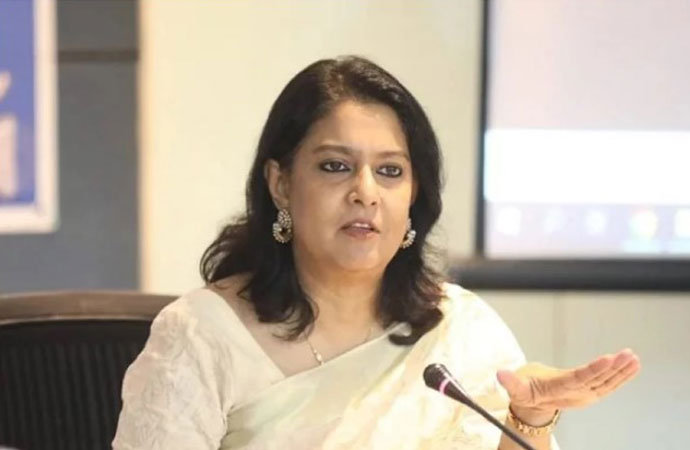
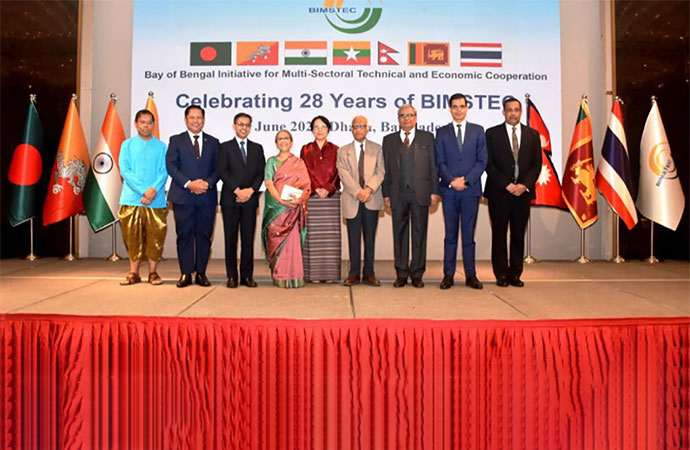








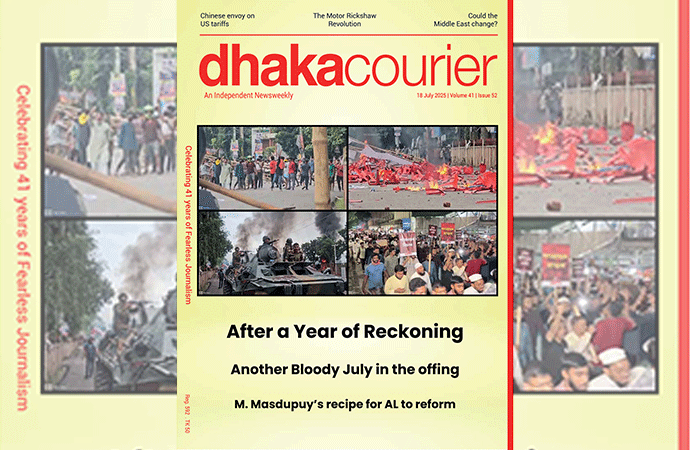
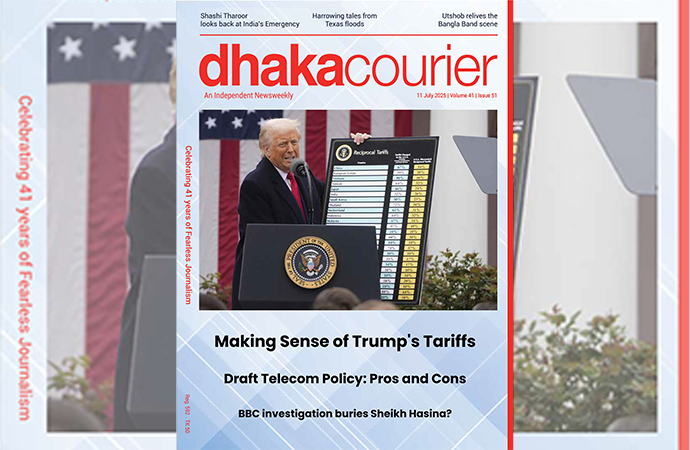
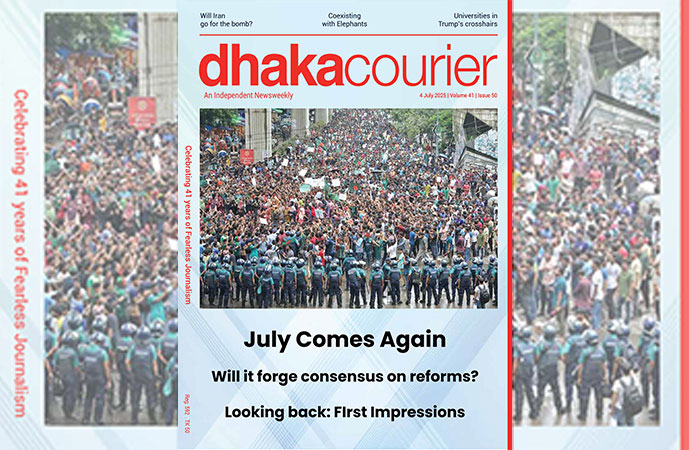
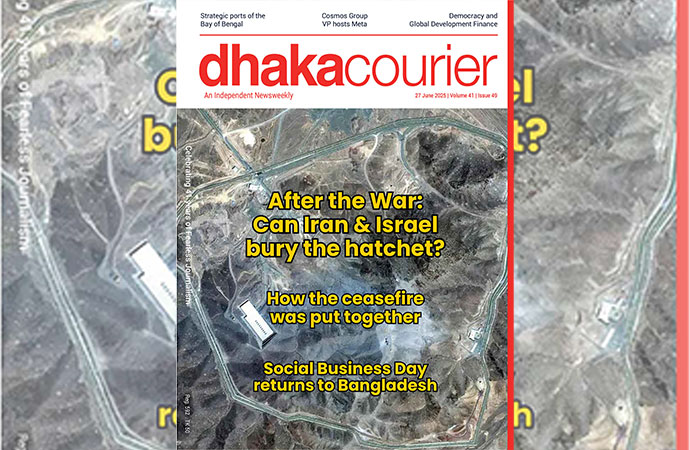
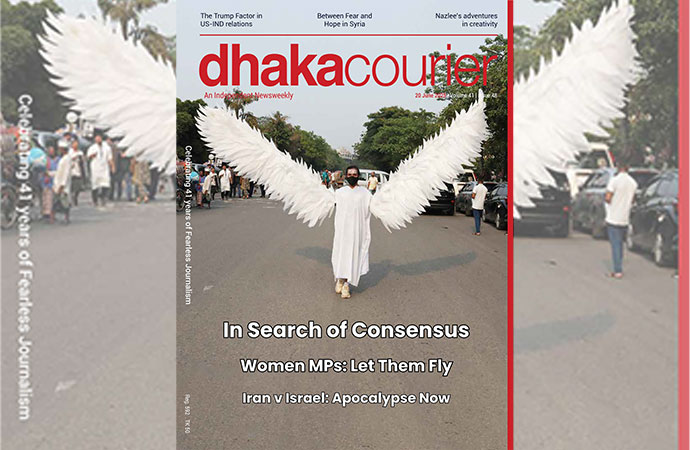
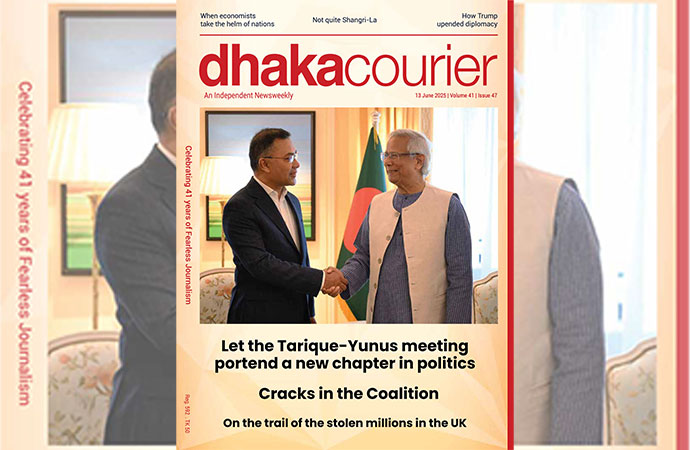
Leave a Comment
Recent Posts
The Northeastern Question
When secessionist movements sprang up across the Eastern European part ...
Trump’s Tariff: How far should ...
Will Bangladesh manage to get a last minute reprieve on its 'Trump tar ...
Rivers, Peaks, and Expressions – My Experience at th ..
What lies behind the alarming spike in violence agai ..
A Himalayan choice
Twenty Palestinians were killed at a food distributi ..